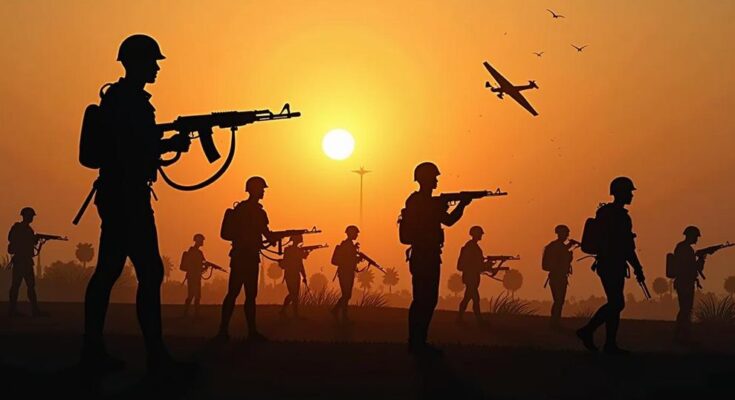The Sudanese army disputes UAE accusations of bombing its ambassador’s residence in Khartoum, blaming the attack on the Rapid Support Forces (RSF). The UAE condemned the strike as a “heinous attack”, prompting Sudan to label the RSF as a terrorist group backed by external countries. Escalated fighting in Khartoum has persisted for four days.
The Sudanese army has categorically denied allegations made by the United Arab Emirates (UAE) regarding an assault on the residence of the UAE ambassador in Khartoum, attributing the attack to the paramilitary Rapid Support Forces (RSF). On the earlier date, the UAE had condemned what it termed a “heinous attack” conducted by a Sudanese military aircraft, resulting in substantial damage to the diplomatic premises. In a statement, Sudan’s foreign ministry dismissed the charges from the UAE as “false allegations”, labeling the incident as the result of “shameful and cowardly acts” carried out by the RSF. The Sudanese military has persistently accused the UAE of supplying armaments and logistical support to the RSF amid a protracted 17-month civil conflict within Sudan, claims the UAE has consistently denied. Reports from UN sanctions monitors have validated these allegations, noting credible assertions of military backing provided to the RSF by the UAE. In response to the UAE’s claims, the Sudanese government labeled the RSF as a “terrorist, rebel militia”, accusing them of being supported in their activities by certain nations. Eyewitness accounts indicate that intense clashes have erupted across various districts of Khartoum over the past four days, indicating a significant escalation of violence in the capital.
The current unrest in Sudan has escalated due to a prolonged conflict involving the Sudanese Army and the Rapid Support Forces (RSF). This civil war has generated significant regional and international tensions, particularly concerning the role of foreign nations in supporting local factions. The allegations between Sudan and the UAE highlight the complexities of geopolitics in humanitarian crises, where military support from external parties can exacerbate local conflicts. Understanding the entanglements of local and international interests is vital for comprehending the broader implications of these allegations, as they may influence diplomatic relations and regional stability in the Horn of Africa.
The Sudanese army has firmly rejected allegations from the UAE about an airstrike on its ambassador’s residence and instead blamed the RSF for the attack. Accusations of foreign military support continue to cloud the ongoing conflict. As fighting intensifies in Khartoum, the situation necessitates close observation, particularly regarding how external nations might shape the developments on the ground.
Original Source: www.news24.com




